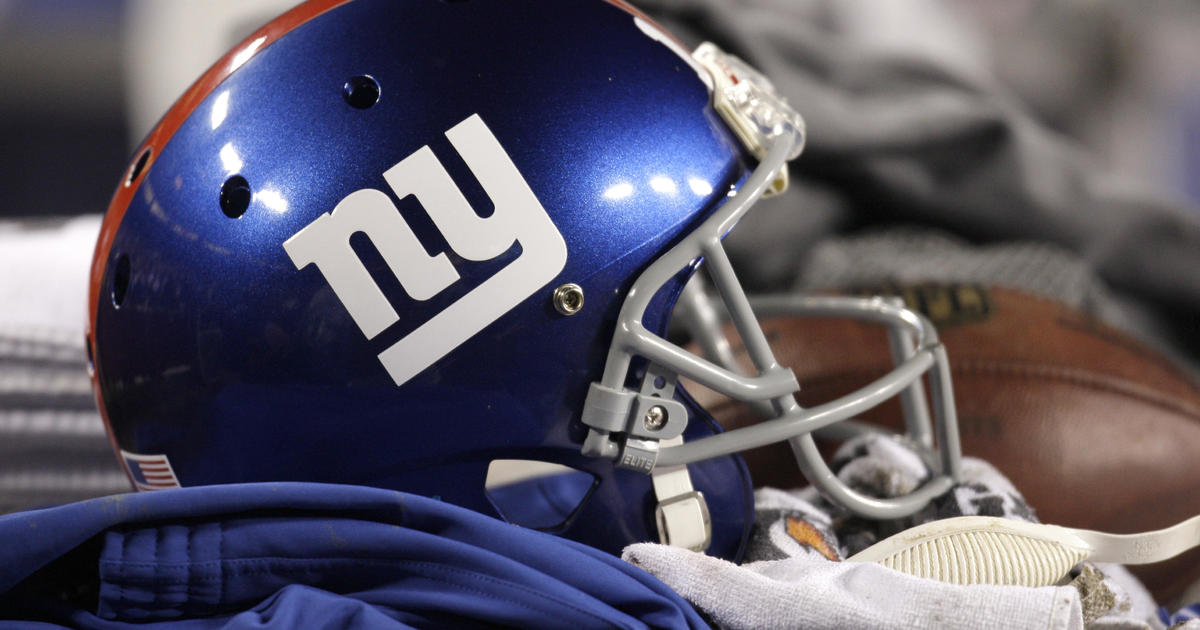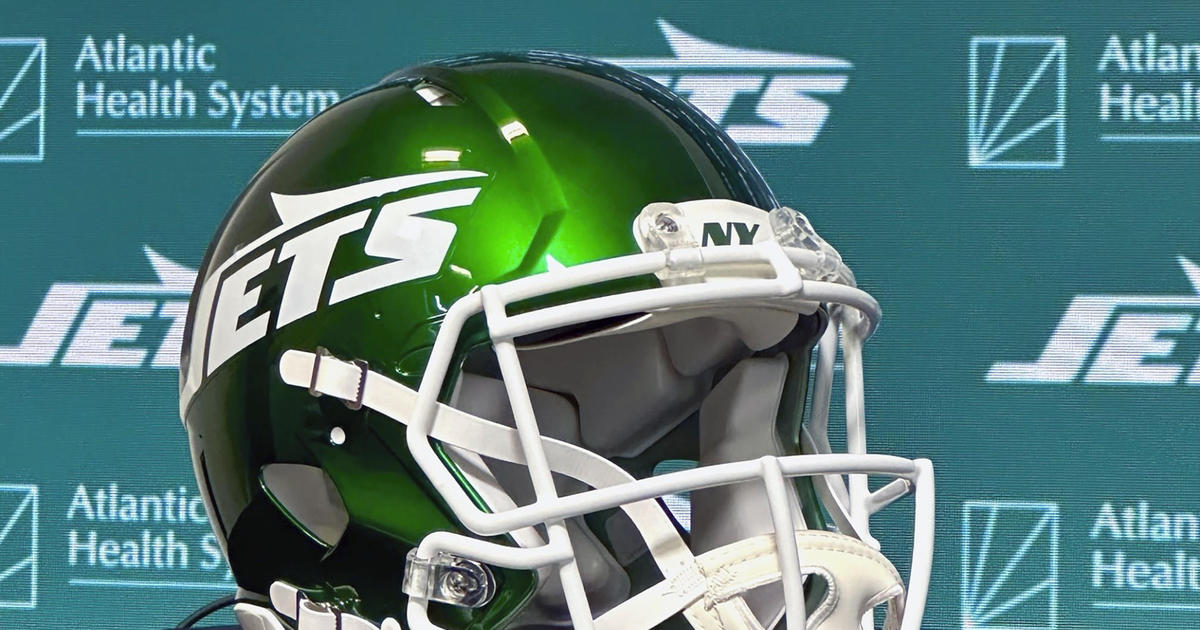Roger Clemens' Defense: Evidence Of DNA, Steroids Faked
NEW YORK (WFAN/AP) — Prosecutors said Wednesday that needles and cotton balls Brian McNamee used to inject former Yankees star Roger Clemens tested positive for Clemens' DNA and anabolic steroids.
As for Clemens' defense? They say the evidence was faked.
Assistant U.S. attorney Steven Durham revealed the results during opening arguments in Clemens' trial on charges of lying to Congress about using performance-enhancing drugs. Clemens' attorney Rusty Hardin responded that he won't dispute the needles contain Clemens' DNA and steroids, but accused the trainer McNamee of "mixing" it up.
"He manufactured this stuff," Hardin told jurors. "Roger Clemens' only crime was having the poor judgment to stay connected with Brian McNamee."
Hardin said steroids would have been so "incredibly inconsistent with his career and beliefs that there's no way he would have done it."
Clemens has said that the only things McNamee ever injected him with were the common local anesthetic lidocaine for his joints and vitamin B-12 to ward off flu viruses and stay healthy. But Durham said neither substance was found on the needles or cotton swabbed with his blood stains.
Hardin told the jury that the government is "horribly wrong" in charging his client with perjury, false statements and obstruction of Congress. Clad in a dark suit, Clemens watched silently from the defense table with a clenched jaw.
"There was a rush to judgment on Roger that has made it impossible for him to be fairly heard until he got here," Hardin said in the federal courthouse just a couple blocks from the congressional hearing room where he testified three years ago.
"It's a fact of life that sometimes when people reach the mountain, there is an unwillingness to give them equal consideration when people come down on them," Hardin said. "And that's what happened with Roger."
Hardin showed the jury an enlarged photo of the country with all the sites where federal agents investigated the case. He said it involved 103 law enforcement officers, five attorneys, 229 investigation reports and 72 investigation locations across the continental United States, Germany and Puerto Rico.
"They still didn't find anything to connect him with steroids except Brian McNamee," Hardin said.
Durham, however, said that about 45 witnesses, including several of Clemens' former teammates, will help make the case that Clemens used anabolic steroids and human growth hormone. When Clemens denied the use under oath before a House panel in 2008, Durham said, "It was false and he knew it was false."
Hardin argued that the government's case essentially rises and falls with McNamee, who the lawyer said has lied repeatedly. "He's still lying," Hardin said.
Hardin also said that McNamee lied in a police investigation in Florida in 2001. The trainer was investigated for sexual assault, but Walton had previously instructed Hardin not to discuss specifics of that probe in front of the jury.
Hardin tried to fight the perception that Clemens arrogantly insisted on testifying before Congress to protect his legacy and thus put himself in this criminal position. He was not subpoenaed to testify and Hardin says it was "technically true that he voluntarily appeared" though under tremendous pressure.
"Roger Clemens, unless he was comatose, always knew the danger of him testifying," Hardin said, pointing out that fellow Major League Baseball player Miguel Tejada was charged with misleading Congress for earlier testimony.
"Did he (Clemens) do it out of arrogance and wanting to go to the Hall of Fame?" Hardin said. "Really? To get into the Hall of Fame? Really? Is that what we've come to?"
Hardin showed a photo of the crush of photographers around the witness table as Clemens came into the House hearing room and called it a "scene." Then he showed video of Clemens telling lawmakers that he thinks steroids are wrong and detrimental, but "no matter what we discuss here today, I'm never going to have my named restored."
Hardin objected during Durham's opening argument when the prosecutor told jurors that Clemens teammates Andy Pettitte, Chuck Knoblauch and Mike Stanton will testify they used performance-enhancing drugs to recover from injuries and because the pressure to perform was so high in Major League Baseball.
Walton has expressed concern in pretrial hearings that kind of testimony could lead jurors to consider Clemens guilty by association, and the judge told jurors to disregard Durham's comments about other players.
Durham said aging baseball players took performance-enhancing drugs to try to keep their jobs in a competitive industry.
"Every year younger players come into the league, and they want to take the jobs of older players," Durham said
Hardin went over Clemens' many achievements, including a record seven Cy Young Awards given annually to the best pitcher in the league, and argued that he was great before and after McNamee says he injected him with drugs from 1998 to 2001.
"Roger Clemens has a right to be hurt and mad," Hardin said. "He was totally betrayed by a worker he considered a friend."
Hardin said hard work was responsible for Clemens' longevity. He said Clemens was not a natural athlete and while his high school buddies were partying on Friday nights, he was working out.
Durham showed a photo of the yellowing cotton balls, needles and vials turned over by McNamee, who the prosecutor described as "a man that was hand chosen by Mr. Clemens to train him." He said the evidence was tested by two California labs — one that found Clemens' DNA on the needle and cotton and another that tested them for drugs.
"They found absolutely no B-12, and they found absolutely no lidocaine," Durham said. "What they did find was anabolic steroids."
McNamee says he collected the evidence in 2001, when Clemens became the first pitcher ever to start a season 20-1, led the Yankees to the World Series and won his sixth Cy Young.
Durham said McNamee saved the material — the photo showed the Miller Lite can that McNamee kept it in for more than six years — because he was always skeptical he could trust his star client if steroid allegations ever surfaced and that he would be "thrown under the bus." Durham said McNamee did not initially tell federal agents about it, but only did so after Clemens went on CBS' "60 Minutes" and smeared his name.
"Then Mr. McNamee considered the bridge completely burned and he knew where he stood," Durham said. He acknowledged that the jury will hear many "negative things" about McNamee, but said they will not ask them to rely on evidence from any one person.
"Everything Mr. McNamee says we intend to corroborate with independent evidence," he said.
Your thoughts on the Clemens evidence? Sound off below...
(TM and Copyright 2011 CBS Radio Inc. and its relevant subsidiaries. CBS RADIO and EYE Logo TM and Copyright 2011 CBS Broadcasting Inc. Used under license. All Rights Reserved. This material may not be published, broadcast, rewritten, or redistributed. The Associated Press contributed to this report.)



